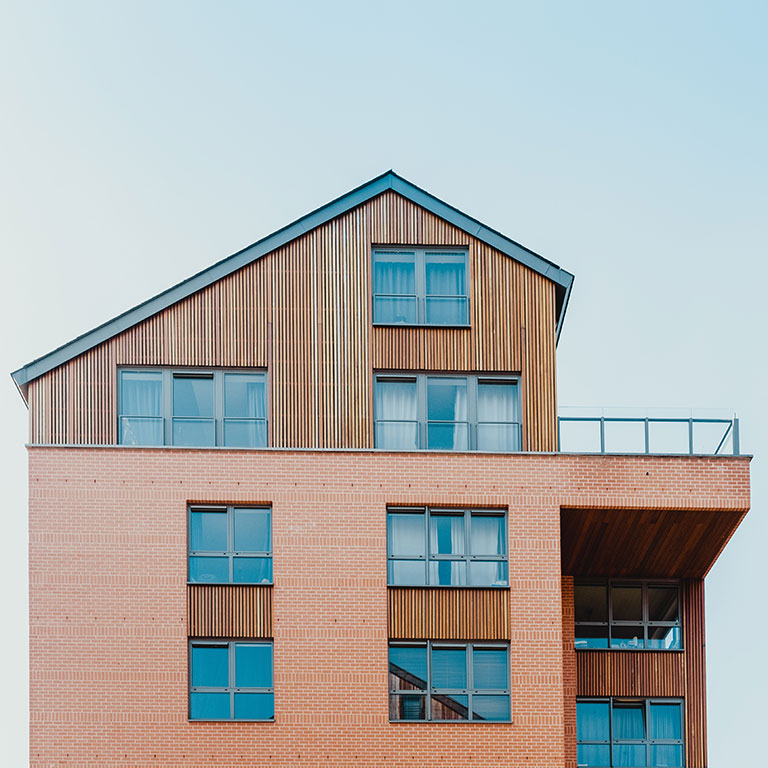
Commercial properties, also called commercial real estate, income, or investment property, are buildings that house businesses or land that is solely intended to generate profits either from rental income or capital gain. They include office buildings, medical centers, industrial properties, malls, hotels, retail stores, multifamily housing, farmland, garages, and warehouses. This can also include larger residential rental properties. Typically, the purchase and/or renovation of these properties is financed by a commercial real estate loan. There are five types of commercial real estate loans, namely SBA 7(a) Loan, CDC / SBA 504 Loan, Traditional Commercial Mortgage, Commercial Bridge Loan, and Commercial Hard Money Loan. Each of the aforementioned loans has unique terms and qualifications.
The commercial loan process varies greatly from the standard residential mortgage processes. Governmental bodies do not support these loans; consequently, the majority of commercial lenders are risk-averse and thus charge higher interest rates compared to a home loan. Before applying for a commercial loan, there are several factors that a borrower ought to consider.
Deciding the Amount of Loan You Need
You should determine the approximate amount to borrow depending on your current needs. You also need to know that most loans don’t allow a second mortgage. Once a borrower purchases a new property, a traditional acquisition loan is provided. The required down payment, in this case, is anywhere between 20-25% of the total cost. Conversely, smaller down payments are required for traditional loans. For this reason, they have a higher loan-to-value (LTV) cost ranging between 85-90%.
When choosing a lender, make sure that you pay attention to getting adequate capital that will meet cash-flow needs. Failure to achieve this may result in a failed small business. Commercial lenders may be hesitant to finance the loan, based on the amount of money you apply for. For instance, small businesses borrowing over $4 million will be treated differently by potential lenders than those borrowing less than $2 million.
Understand Your Loan Repayment Terms
Unlike home mortgages, commercial real estate loans come with two types of terms, long-term loans that last for five to 20 years and intermediate-term loans of three years or less. Usually, borrowers are required to repay their commercial loan off before the full term when they borrow from banks. In this case, the borrower pays principal and interest for the first few years and subsequently repay the remaining balance in a lump sum. The borrower may not have enough money in the assigned time, and as a result, they refinance the loan or requalify for it before the balloon term.
Non-bank lenders normally offer less strict credit requirements particularly for commercial loans and may even offer long-term commercial loans. Even though these loans are associated with high-interest rates, balloon payments are not common as you’re allowed to repay the loan steadily for years after. The actual interest rate is based on your type of business, your creditworthiness, and your business’ financial health. The rates are often lower than most other business loans.
Determine Your Down Payment Amount
A commercial real estate purchase isn’t much different from purchasing a home, but you should remember that you’ll be required to make a down payment. While most home mortgages loan requires a 20% down payment or loan to value criteria, the values can vary when it comes to commercial real estate purchases. Before considering or approving a loan application, most commercial lenders ask for a minimum 30% down payment. Your LTV cost will decrease when investing in a commercial property and this means that you’ll likely require the borrower to contribute more to the down payment. As such, you should aim to put the least amount of money or aim for high LTV values. You will need to consider your ability to pay the loan, and this means making sure that the loan is in your price range.
While providing a substantial down payment tends to reduce the potential monthly payments, keep in mind the fact that you’ll still have to pay the total amount. With SBA Loans, for instance, you can be offered a loan of up to 90%, and you get to pay a 10% down payment. If you’re looking for a commercial real estate loan for a property worth between $250,000 and $5 million with a Conventional Commercial Loan, you’ll need a down payment of 25-30% down payment to qualify. Private Commercial Lenders, on the other hand, will require a 15% down payment then the lender will provide the remaining 85%.
Need More Help? Get In Touch with Unique Properties Today!
Unique Properties is a firm specializing in leasing, dispositions, acquisitions, and property management of industrial, land, office, medical, retail, and multifamily properties. With over 40 years experience in Colorado commercial real estate, we are positioned to help clients reach their financial and business goals. Contact us for more information regarding commercial property loans. We can discuss your needs, answer your questions, and help ease the confusion associated with the purchase of commercial properties.
« Previous Next »